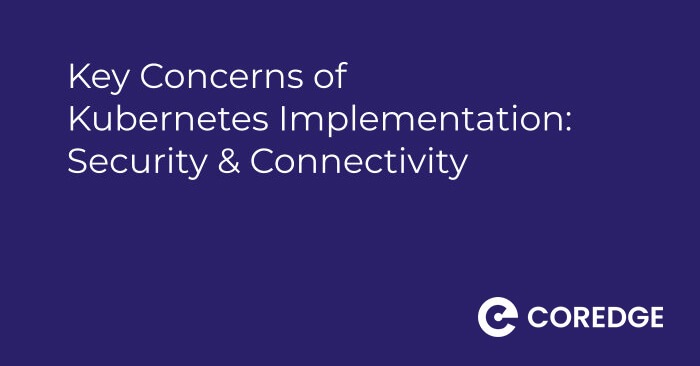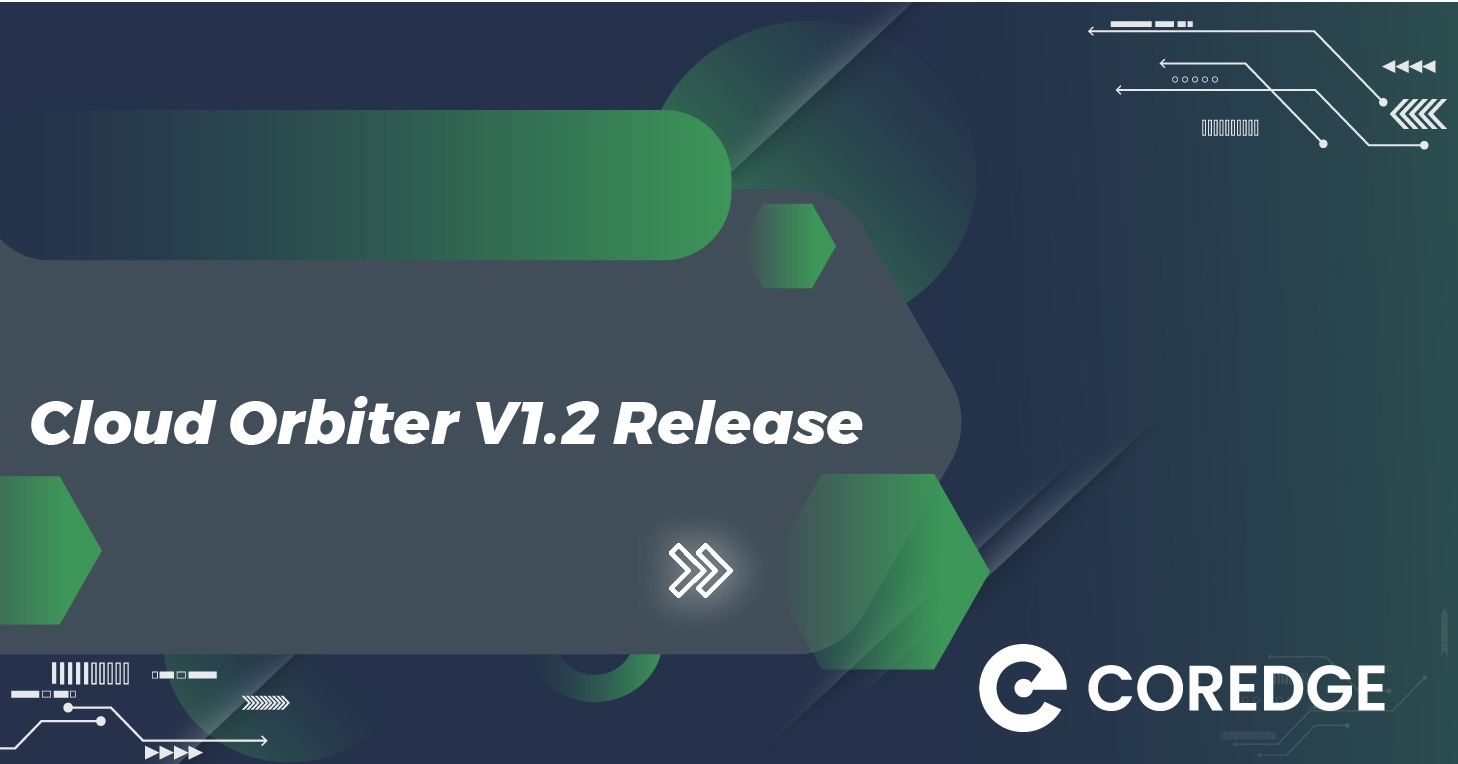What is Cloud native Security? An Extensive Guide
Coredge Marketing
November 24, 2021

Kubernetes is an open-source and portable platform offering easy ways to scale your application when it is compared to virtual machines. This platform helps in keeping the code operational and speeding up the delivery process. It marks a breakthrough for the DevOps community! It permits developers to be in line with the current software development requirements.
Due to the adoption of distributed cloud architecture and the need for multi-cluster operations deployed in multi-cloud or hybrid cloud models, enterprise admins and telcos are looking at Kubernetes as a go-to platform that helps in managing their workloads and applications.
But Kubernetes comes with few considerations while deploying in production, from Day 0 to Day 2 operations. In this article, we will talk about concerns regarding Kubernetes security and Kubernetes connectivity.
Kubernetes Security
Kubernetes security is crucial all through the container lifecycle. It is because of the dynamic and distributed nature of a Kubernetes cluster. Various security methodologies are needed for the build, deploy, or runtime phases of an application lifecycle.
Kubernetes security concept is based on the fact of keeping cloud-native workload secure in the best possible manner. In the context of cloud-native security, Kubernetes security is based on 4C’s including Cloud, Cluster, Container, and Code.
Cloud:
Cloud is a colocation facility or corporate data center. The cloud layer is the most external layer. If this layer is configured in a vulnerable manner, then there are fewer chances of components being secure. The best cloud practices should be observed by the basic cloud provider. For every cloud service provider, security suggestions are there. All these security recommendations help companies run workloads effectively.
Cluster:
Kubernetes cluster security means the security of both Kubernetes API and all apps that are under the cluster. Clearly, there are 2 major concerns to maintaining the security of Kubernetes in the cluster layer. First to secure configurable cluster components and second to secure apps that run within the cluster. This implies that all the Kubernetes components that are forming worker nodes and control planes are prevented from malicious access. If you want to prevent your cluster from a malicious act or unwanted access, then you must adopt good practices and certain security principles. This will help to secure your cluster in Kubernetes.
Container:
Container security comes granting permission to unnecessary privileges to customers is avoided and containers would be scanned for checking vulnerabilities (if any). For container vulnerability scanning and OS dependency security, you need to scan containers for known vulnerabilities. It is recommended to use container runtime to avoid complex issues and maintain a level of trust for organizations. You must use container runtime classes that render stronger isolation. Container images also enable strict version control and better patch management as they only get replaced, no updates are possible in it.
Code:
Code is the main attacking point for any Kubernetes system. Some policies like scanning, testing, encrypting TCP (with the use of TLS handshakes) should be used to prevent security issues. The code layer is the innermost level and it is significant that DevOps teams should rely on CI/CD pipeline integration, automated testing, security scanning, and static code analysis. To improve security, you must limit the port range of communication and try to have access over TLS only. In this area of concern, you need to follow consolidated DevOps principles, practices, test automation, trunk-based development, and a lot more capabilities.
In addition to this, Kubernetes follows Pod security standards covering 3 different policies or profiles such as privileged (unrestricted policy), baseline (minimally restricted), and restricted (heavily restricted) to cover the security spectrum.
Kubernetes Connectivity:
Kubernetes follows cluster networking. Kubernetes uses iptables for controlling network connections between pods and between nodes based on different port forwarding and networking rules. Here, port mapping is simplified in a manner that each Pod has its unique IP address and they can communicate with another Pod by directly addressing its IP address. However, it is highly recommended to use Service. A Service is a set of Pods that is reachable through a single, fixed DNS name or IP address.
In addition to this, Kubernetes has the capability to open up various possibilities, right from revolutionizing conventional applications to hybrid and multi-cloud implementations, and cloud-native app development with agility and speed. With Kubernetes, you can run or schedule containers on clusters of virtual/physical virtual machines, while bringing automation in different business operations. Moreover, Kubernetes helps companies blow into the latent of containers in daily routine in automated mode. It also assists in load balancing and assuring high-availability settings.
The bottom line is, Kubernetes is a highly secure open-source platform working on a network cluster model. If you are looking for a secure solution to develop modern software for your business or planning to automate your business operations, think about it.
If you have any doubts, contact our tech-savvy team at Coredge. We’d love to assist you.
Write your query to us at talktous@coredge.io





